Our Top 5 Episodes of the Year
We’re looking back at some of your favorite episodes and ours with a year-end countdown. Join us as we remember some of the most thoughtful moments in our first season.
Subscribe so you don’t miss an episode!
Visit the credits tab for links to all of the episodes mentioned, and share your favorite moments from Season 1 in the comments below!
Download the transcript and discussion questions.
Discussion questions
- As we reflect on our top episodes from the first season of the podcast, what moments stand out in your life from the past year? Take some time to reflect on those moments.
- Thee Quaker Podcast seeks to highlight stories of spiritual courage. What examples of spiritual courage have you witnessed this past year?
Georgia
Hello everyone and welcome to our second bonus episode! I’m Georgia here with a little bit of a cold, so forgive the voice. Anywhoo, we’re deep into working on season 2, but as we end 2023, we wanted to wrap up the year with a list of some of the most talked about, most popular episodes in our first season and I’m going to do that by sharing some highlights from our top episodes.
As I was working on this list, I was kind of gutted because there are so many moments that I wanted to include from our 20 episodes, but alas, we’ve narrowed it down to five (maybe six) moments that encapsulate what our season has been about and what you’ve told us has resonated with you.
So I’m going to do this countdown senior superlative style. Are you ready? Let’s go.
[music]
Georgia
So throughout this first season, we interviewed dozens and dozens of people — from random person on the street interviews in downtown Philadelphia to Quakers on four continents. So number five on our countdown is our episode with the Most Guests. [Drumroll] And that distinction goes to Episode 18: Online Quaker Communities. This episode was part of a thread that we followed throughout the season in which we explored the ways that Quakers are connecting virtually, from Meeting for Worship on Zoom to social media in the era of Elon Musk. We looked at ways that these have furthered community, and some of the ways that they’ve been challenged and questioned.
For that episode, I spoke with David Colletta and Sarah Allen — two friends who left Twitter and started their own Mastadon server for Quakers.
David Coletta
I think it’s really unfortunate that Quakers ended up having to use platforms like those that are intended mostly to make money through advertising and make it somewhere between extremely difficult and impossible for the people using them for community to really own their content to have any kind of control over who sees it and who doesn’t. And to kind of manage it in a faithful way. I understand why Quakers are there, a lot of it has to do with the fact that these platforms are super easy to use and accessible by many people. And as soon as you go off the beaten path, it’s very, very hard to make the technology work well. And it really requires someone who’s dedicated to keeping the servers running. And that’s not really practical for Quakers, or most people in general to do for themselves. It’s just a really unfortunate place that we’re in right now in history. The tools are terrible, the tools are broken, they’re all broken. They’re not designed for what we want to use them for. And so we’re having to make do.
Georgia
Last December, Quaker social launched on Macedon, Quaker socials, rules are thus:
David
Be thoughtful, be anti racist, anti misogynistic, and anti homo and transphobic, be authentic, be interesting and interested, be safe. And the one that’s not like the others, don’t violate anyone’s copyright.
Georgia
But what happens when a Quaker doesn’t agree with these rules?
Sarah Allen
I feel more of a sense of urgency of like, what I’d like to have, and we don’t have the mechanism for right now, which I’m we’re still discovering is. Well, if they were, like I thought about the “don’t be homophobic,” when we have Friends who believe that marriage between a man and woman is like a sacred thing, and anything different from that in a relationship is not in keeping with their beliefs as Quakers and I completely disagree with that yet I also believe in continuing revelation. And I believe that the way to resolve this is…it’s a complex issue. What if we had someone from that perspective, join our server and say things that someone interpreted as homophobic and they felt was true to their Quaker beliefs. And I think the way that as Quakers we have a tradition of approaching that with a clearness committee and a discernment, and it’s a live worshipful practice. We don’t have the mechanism to do that, nor the precedent to establish that.
David
I think it’s kind of obvious that it’s an experiment where we don’t really know what the purpose is yet. And part of it is putting it out there and discovering it. But that said, one of the things that I worry about a lot, is that Quakers aren’t really putting themselves out there very much in the places where younger people are likely to find us. And obviously, the podcast is helpful in changing that. But social media is another big place where younger people are and Quakers well, sort of are but could be more. So I’m excited about the Mastadon server also as a way for people whose first thought is to look on the internet to find Quakers.
Georgia
This conversation had a lot of nuance, so check this one out to hear more about the group on Mastaon, about the Quaker group on Reddit, about a British Quaker who has stayed on Twitter, and more.
Georgia
Ok. We’re on to number four in our countdown and this one is our Best Conversation Starter. We know that many of you like to discuss our episodes with your friends and family and meetings, which side note is why we include discussion questions on the transcripts of every episode. Anyway, this next episode is one that we know has generated a lot of conversation and for good reason. This episode has so many thought-provoking moments on this episode, so much compassion and so much honestly. [Drumroll] Best Conversation Starter is Episode 19: God Is Everywhere: Vocal Ministry in Everyday Conversation. For this episode, Jon went with O as she spent time with people in her community. Here’s what she had to say about vocal ministry and listening:
O
I am always doing vocal ministry. And so, and that’s exciting. It’s an exciting way to live to know that I will only be here 70, 80 years, and why not lend my voice to that kind of focused loving.
I choose to believe God is calling us to intimacy these days, how to be intimate and provocative. In a way in which we are reaching for, we are reaching for the soil of each other’s soul. And when we reach for that soil, how are we tilling the field of the soul in order to awaken the seeds of imagination for a better world than the one we’re living in, but to also be able to hold the pain and the sorrow and the sadness and the grief that we’re not there yet. We’re not there yet. But hopefully, this kind of work this kind of listening, this kind of vocal ministry, both as listener and sender will support the transformation that we are so desperately in need of right now.
Georgia
With this episode we got to sit in on three different conversations and they were all really powerful in their own way, but I think this conversation that O had with her own daughter, Toni, stood out the most to me. This was recorded at the end of the day, after Toni had put her young daughter, Willow, to bed for the night.
O
I remember the other day you called. And I was like, where are you? You’re like, I’m out driving by myself. And that was like, you were like so excited.
Toni
I was which I feel shame and guilt for that say more. The guilty part says you shouldn’t you shouldn’t feel this happy away from your child.
O
Can I slow that down a little?
Toni
Sure.
O
So I think what I heard you say is so there’s this mommy guilt thing we’re talking about early on part of the conversation there is I shouldn’t feel this happy when I’m away from my little one. And so the story you make up about that is that’s really bad.
Toni
Yeah.
O
And because I know your history because I’m your mom, I know some of the root of that. I want you liberated from that past wound, when I wasn’t there for you. And so somewhere in there because I wasn’t there. You have that. entwined with your relationship with Willow. I want you liberated there. That doesn’t belong to you, that belongs to you and I, but that doesn’t belong to you and Willow. Does that make sense? Right?
Toni
Yeah.
O
So thank you for allowing me to knock at your door. Check in on you see how you’re doing around this. Mommy? Wife, two dogs, a house.
Toni
Oh geez.
O
Yeah, just all of that. As well as continuing to attend to our relationship as well.
[Music]
Georgia
If you missed our episode with O, please do yourself a favor and go back and listen to that one. I think it could really shape your conversations with friends and family, especially during this holiday season. Ok let’s go to the next one on our list.
Georgia
Now the first two episodes on our countdown were from later in our season but this one is from early on. Number three on our countdown is the episode with the most comments, and it was one I spent a lot of time researching and putting together, so it’s a particularly memorable episode for me. Ok, without further ado [drumroll] our most commented on episode is Episode 5: The Grimke Sisters: How Two Southern Slave-Owning Quakers Became America’s Fiercest Abolitionists.
The Grimke sisters were just amazing powerhouses for the abolition movement, they were pretty fearless and the challenged the Southern slave-owning society that they knew grew up in, they subverted the gender norms of the day, and they confronted racism in their Quaker meeting.
I opened this episode with one of the most dramatic moments from the lives of the Grimke sisters — the scandalous wedding of Angelina Grimke.
Georgia
It’s May 14, 1838, in Philadelphia, Pennsylvania, and the heavyweights of the abolition movement have gathered for the wedding of Angelina Grimke and Theodore Weld. She a Quaker, he a Presbyterian. Angelina’s sister and fellow abolitionist Sarah is there too, of course.
And this wedding like most things the Grimke sisters have done in recent years has caused quite a stir. They’re just so very unladylike.
Of course, the Quakers are not happy that one of their number is marrying outside of the fold. But that’s not the only detail out of the norm. Again, it’s 1838, 23 years before the Civil War. Yet, the wedding cake is baked with free trade sugar. The groom signs away rights to his wife’s assets, and in her vows, the bride omits the usual promise to obey her beloved. Overseeing the ceremony are not one but two ministers, neither of them Quaker. Even stranger, one is black and one is white.
The guestlist is also mixed. In attendance are formerly enslaved people, once the property of the bride’s family in Charleston. There is an abolitionist newspaperman named William Lloyd Garrison, and there’s even a man sporting a long flowing beard that he’s vowed to cut only when American slavery has come to an end.
This is the sisters’ penultimate public event. In a few days, Angelina will deliver an incendiary speech surrounded by an angry mob. And then Sarah, Angelina, and Theodore will almost completely disappear from the abolition movement.
If you haven’t listened to our episode on the Grimke sisters yet, I hope that piqued your interest. If you’re looking for another episode that prompted a lot of comments from our listeners, check out Episode 11: What if God was the Rest of Your Body? Featuring vocal ministry with Craig Freshley. And all of the episodes mentioned will be linked in the show notes on our website.
Ok from two abolitionist sisters who went viral in the 1800s we’re going to go to our most viral episode, the one that focuses on some fairly obscure groups from some 300 years ago. This one had perhaps our broadest reach of the season. Number three on our list [drumroll] Episode 16: The Weird World of Religious Radicals in 17th Century England!
We covered a lot of ground on this episode and we had an amazing group of historians walked us through the major religious and political movements of 1600s England — the “foment,” if you will, in which Quakerism came to be. We learned about the Ranters, the Diggers, the Levellers, the Muggletonians, all in anticipation of our episode on Quaker leader James Nayler.
In this clip, Doug Gwyn helped us understand where the Quakers fit into this milieu of religious sects. Many had dissolved by the time Quakers came on the scene and followers of some of these other groups joined the growing Quaker movement, which proved a lot more difficult for the British government to squash.
Doug Gwyn
It’s just a lot harder to round up and jail this expanding vanguard of traveling men and women prophets rampaging around the countryside than it was to stamp out a few communes around the countryside. So it’s a much harder movement to stop. And they publish at a rate unlike anything anybody had had done before. And all kinds of people were getting into print, men and women, Quakers were getting tracks published. It’s a rapidly moving situation. The kind of spiritual counsel that Fox and others begin to help people with gets them centered in a radical present. That that is incredibly energizing, the energy is partly out of all the frustration that they’ve experienced over the previous decade. And all the faded hopes that suddenly catch fire again, with a new conviction and a new sense of authority, you know, to go out and speak the word of the Lord in the marketplace and in the streets and interrupt parish churches all over the country in their worship and denounced the clergy and stuff that was done in small ways previously, but nothing like like this. So in the 1650s, the Quakers are the scariest thing around and everything has gotten so easily quashed in the previous decades can’t be contained.
Georgia
I learned so much from this episode. And it gives really great insight into the world that the first Quakers lived in.
We’ve made it to 1 on our list. This one is the one that started it all and it’s also our most downloaded episode. Alright [drumroll] Episode 1: Who are Modern Quakers?
When we launched the podcast, we wanted to focus on the state of modern Quakerism, which was a pretty broad place to start, but we felt it was important to touch on the breadth of who Friends are and where they are. I’m going to share a few clips from this episode. First up, Marge Abbott, who co-wrote Quakerism: The Basics with her husband Carl.
Marge Abbott
There’s the reality that of Quakers worldwide, half of them are in Africa. Another third of them are in Latin American and in what 20% are in the us. We’re definitely not but even the majority of Friends worldwide.
Georgia Sparling
There are pockets of Quakers all over the place — Indonesia, Nepal, Guatemala, Croatia, Malta, Bhutan, even Hong Kong — but Kenyan friends make up the lion’s share of Quakers today, and they are growing. While there are an estimated 400,000 or so Quakers worldwide. Dr. John Muhanji believes that there may actually be more than that in Kenya alone. Dr. Muhanji is the African Ministries Director of Friends United Meeting. He lives in Kisumu, Kenya, and overseas missions for the organization, which has planted churches, schools and other initiatives in countries including Burundi, Rwanda, Zambia, and Tanzania.
Dr. John Muhanji
And I can assure you, the world is looking for Quakerism for Quaker values.
Georgia Sparling
Kenyan Quakerism is solidly evangelical.
Dr. John Muhanji
So the church in Kenya is pastoral in nature, evangelical in nature, and is not silent, it’s vocal. That means, we sing, you come to our worship, prepare to sing, prepare to dance, we and you will, we will dance as we sing our hymns. We pray vocally loudly, we don’t just keep quiet. So there is only one silent meeting in the whole of Kenya.
Georgia
In the episode we talked about some of things that concern Quakers, namely attrition. I really appreciated what Rhiannon Grant had to say on this topic. Rhiannon is a British Quaker and author. Here’s what she had to say.
Rhiannon Grant
The numerical picture is one thing, but the picture of whether the Spirit is moving, I would say is different. And what I see when I visit meetings is small but committed groups of people who are keeping things going, who are committed to doing it and doing it well, who want to be Quaker who want to participate in that community, and are prepared to put in the work to make that happen.
Georgia
Ok! So that is our list! I hope you’ve enjoyed hearing from some of our greatest hits of season 1! Two things before we go. One, on behalf of the Thee Quaker team, I want to say a big, big, huge thank you to everyone who has listened this year, for those of you also who have become a patron, who have left us a comment, sent us a voicemail or shared an episode with a friend. We’re so thankful for you and we can’t wait to share new episodes with you in 2024.
And second, before we go. I wanted to leave you with one final episode excerpt. Another of our most popular episodes of the season was our profile of James Nayler — the larger than life Quaker minister who was a contemporary of George Fox, who got into big trouble when he reenacted Jesus’s palm sunday entry into Jerusalem, but who really remained true to his Quaker faith even after beating and imprisonment. At the end of our episode on James Nayler, we shared some of his final words, recited by the historians who helped us tell Nayler’s story. I wanted to play that again for you today in closing.
Max Carter
“There is a spirit which I feel that delights to do no evil, nor to revenge any wrong, but delights to endure all things, in hope to enjoy its own in the end.
Stuart Masters
“Its hope is to outlive all wrath and contention, and to weary out all exaltation and cruelty, or whatever is of a nature contrary to itself. It sees to the end of all temptations. As it bears no evil in itself, so it conceives none in thoughts to any other.
Carole Spencer
“If it be betrayed, it bears it, for its ground and spring is the mercies and forgiveness of God. Its crown is meekness, its life is everlasting love unfeigned;
Stuart
“It takes its kingdom with entreaty and not with contention, and keeps it by lowliness of mind.
Doug
“In God alone it can rejoice, though none else regard it, or can own its life. It’s conceived in sorrow, and brought forth without any to pity it, nor doth it murmur at grief and oppression. It never rejoiceth but through sufferings; for with the world’s joy it is murdered.
Max
“I found it alone, being forsaken. I have fellowship therein with them who lived in dense and desolate places in the earth, who through death
Doug
“Through death
Stuart
“Through death
Carole
“Through death
Doug
“Obtained this resurrection and eternal holy life.
Georgia
This episode was produced by Georgia Sparling and Jon Watts with original music by Jon and mixing by Studio D. For a link to all of the episodes on our countdown and a transcript of this episode, please visit QuakerPodcast.com.
Thee Quaker Podcast is part of Thee Quaker Project, a nonprofit media organization dedicated to telling stories of spiritual courage and exploring what it means to be a Quaker in the 21st century.
We would love it if you would consider becoming a patron. For $5, $10, $20, or $50 a month you can help our project become sustainable in the long term.
Go to TheeQuaker.org to learn more about becoming a supporter.
Happy holidays everybody and we’ll be back in your ears in 2024.
Recorded and edited by Georgia Sparling and Jon Watts.
Original music and sound design by Jon Watts (Listen to more of Jon’s music here.)
Mixed by Studio D.
Supported by listeners like you (thank you!!)
Episodes referenced:
- God is Everywhere: Vocal Ministry in Everyday Conversations
- The Grimke Sisters: How Two Southern Slave-Owning Quakers Became America’s Fiercest Abolitionists
- Quaker Online Communities
- The Weird World of Religious Radicals in 17th Century England
- Who Are Modern Quakers?
- James Nayler: The Quaker Who Rode Into Bristol
- What if God is the Rest of Your Body?
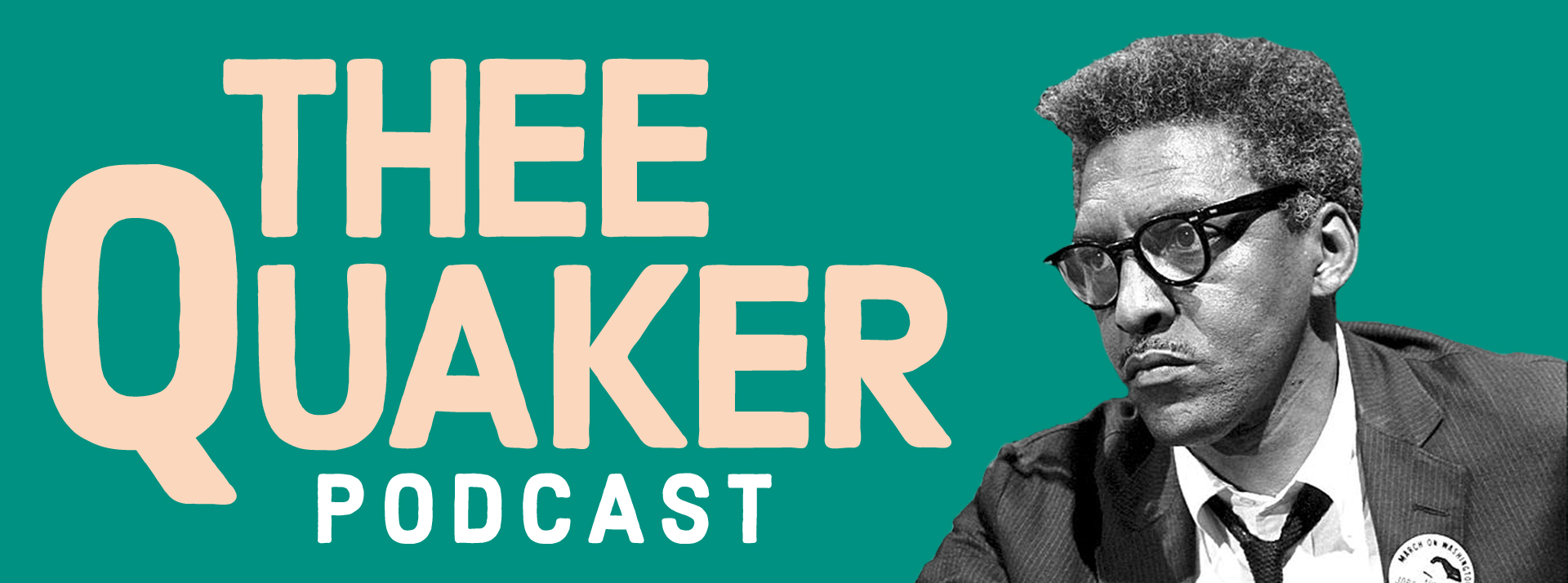

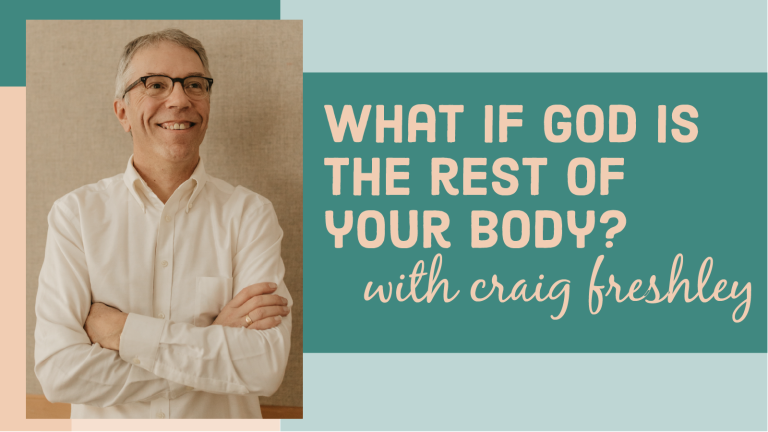
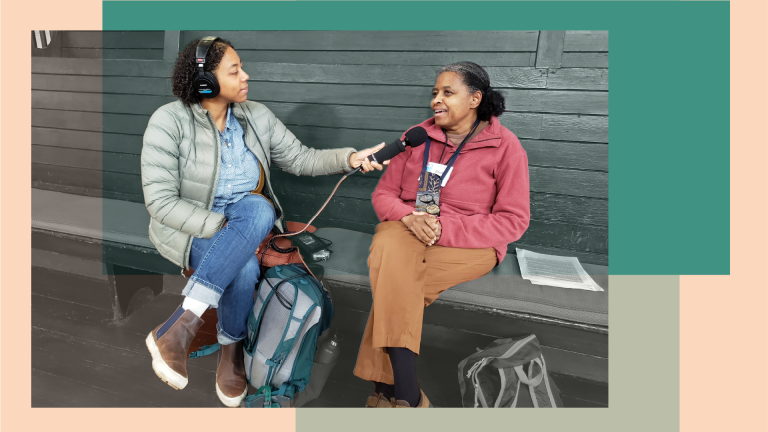
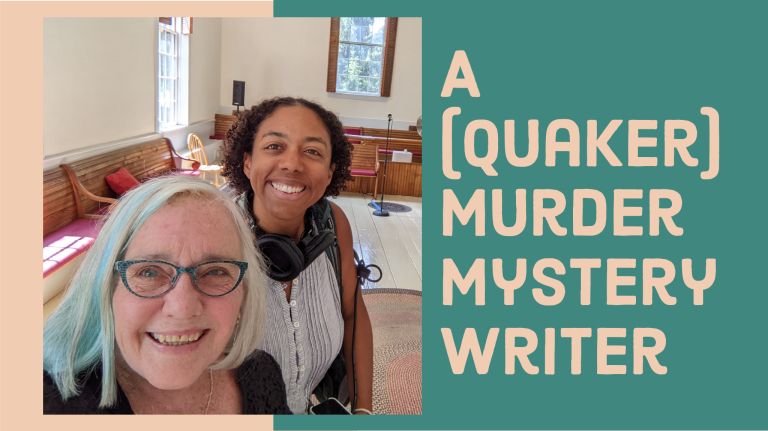
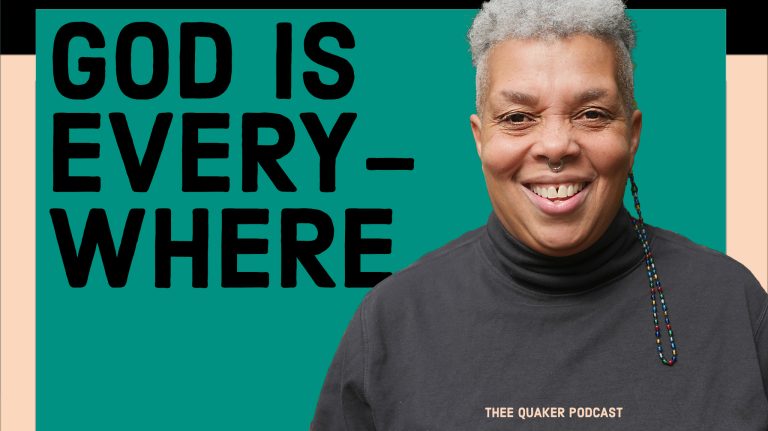

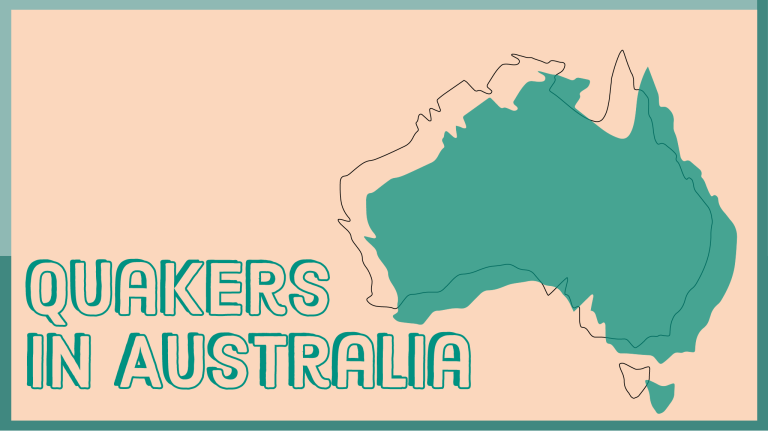
What a great season! Congratulations to Jon, Georgia and Hannah for your great work! Looking forward to Season 2!